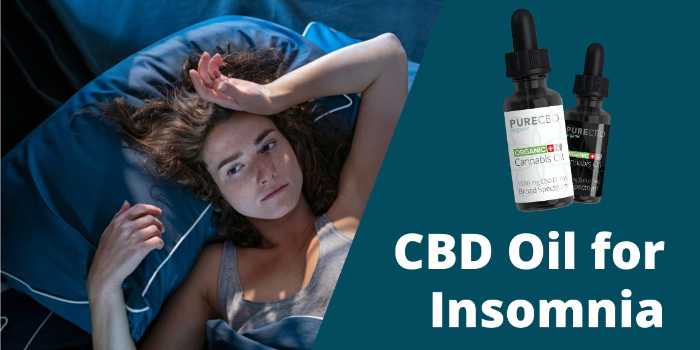No products in the cart.
Return To Shop
CBD Oil for Insomnia: How it Works and What are the Benefits?
If you are having problems sleeping, you are not alone. It was reported by the NHS that nearly 1 in 3 people across the UK are affected by insomnia or poor sleep; That’s millions of people in the UK.
Chronic insomnia can severely affect a person’s health and exacerbate health conditions. Trouble falling asleep and poor sleep amounts lead to mood swings, anxiety, weight gain and a growing dependency on sleep aids which leads to questions about safety and side effects.
In this article, we are going to explore how CBD oil can be used as a natural sleep aid and improve sleep quality. We are also going to cover what the typical causes of insomnia are, what great sleep looks like and what the clinical data says about taking cbd oil for sleep disorders.
What is Insomnia?
Insomnia is one of the major sleep disorders affecting millions of people in the UK. According to this article, over 16 million people in the UK report not sleeping well or enough.
According to the NHS, insomnia means you regularly have problems sleeping. It usually gets better by changing your sleeping habits; but that’s the hard bit.
You can say you have insomnia if you regularly have the following:
- Have a difficult time getting to sleep.
- Wake up multiple times a night.
- Lie awake during the night.
- Wake up too early and can not get back to sleep.
- Still feel tired after you wake up.
- Can take a nap during the day even if you are tired.
- Find yourself irritated or stressed during the day.
- Have difficulties concentrating during the day because you are tired.
What Causes Insomnia?
Insomnia can be cause by pain, an illness like the flu, stress, worry, anxiety, a brightly lit room, noise or a combination of many things. The most common reason in the UK presently is anxiety according to the NHS.
It is no secret that today’s world is more hectic and stressful than ever. Anxiety disorders can impact sleep quality or lead to sleeping difficulties. And while people are looking for help, the options are not always very practical.
Sleep aids are what most people go for, but does it really solve a problem, or create one? Natural sleep aids like melatonin can make a difference, but it can leave the user groggy in the mornings.
Many people will turn to alcohol to help them become drowsy before bed, but we would advise against that. Not only does alcohol inhibit sleep, but it inhibits the best part of sleep called REM or rapid eye movement.
Insomnia can be caused by issues already present in your body like pain but, it can also be the cause of new issues. Think about it, if you are not sleeping well for multiple nights, you start to become worried, this additional stress can release cortisol which can cause your muscles to lock up. It is truly interesting to us how everything is connected.
Things you can do to improve your sleep
If you’re not a big fan of taking pills or drinking to fall asleep, here are a few tips. Remember, little changes can make a big difference so we encourage our readers to try these.
Maintain a Regular Sleep Schedule
By going to bed when you’re tired and getting up at a similar time every day, you can train your body to sleep more soundly. Try not to take naps during the day if possible.
A pro tip is to set an alarm on your phone to remind you to go to bed and another alarm to wake you up each morning.
Create a better sleep environment
If you suffer from poor sleep regularly, try taking a look at your environment. Sleep disorders can be brought on by too much light, noise, cleanliness issues or even the temperature.
Make sure where you sleep has adequate ventilation, is clean and tidy and insulated from noise and light. Wear a sleep mask and earplugs if you need to. Remember, your sleep is vital for your health so any simple things you can do will be an easy and cheap way to boost your sleep performance.
Exercise More, Sleep Better
Not only does regular exercise benefit your physical health, but it also contributes to a better mental state – and being active during the day can help you sleep more soundly at night. Just keep in mind that if vigorous activity before bedtime affects your sleep negatively, then try avoiding it closer to nighttime.
Don’t lie awake all night
Don’t try to force yourself to sleep if you’re lying awake in bed. Get up and do something relaxing for a bit, and return to bed when you feel sleepy. We recommend reading a book, meditating or taking a few drops of CBD with some camomile tea.
Keep a journal about your thoughts
Sometimes when we write down exactly what is giving us anxiety, we can sort of let it go. Facing problems can make what seems like a giant problem look small and manageable.
Anxiety and sleep disturbances go hand and hand and is the number one cause of mental sleep related issues. Being honest with yourself about what is going on could be exactly what you need to start sleeping a bit better.
Stop drinking caffeine or alcohol before bedtime
Stimulants will prevent you from sleeping deeply so our advice is to opt for a cup of decaf coffee after dinner.
As discussed earlier, people think alcohol will help them get a good night’s sleep, but this is far from the truth! Alcohol causes mental sedation, but clinical data suggests that alcohol has a negative effect on rem sleep and deep sleep.
Take CBD Oil before bed
CBD appears help break the anxiety and sleep cycle. It also affects the endocannabinoid system and early research has shown it can interact with the mind and body to reduce stress.
It is important to take CBD oil one hour before bed so that it fully gets into your system and starts working. Using it is simple, just place a few drops under the tongue and hold them there for 2 to 3 minutes. For more information on how to use CBD oil, please click the link.
What is CBD?
Cannabidiol (CBD) is one of the major cannabinoids found in the cannabis plant. To be more specific, it is a cannabis sativa constituent, which is a type of cannabis plant that is low in THC and rich in CBD.
CBD indirectly promotes healthy endocannabinoid activity by interacting with and stimulating the receptors without binding to them. Since the endocannabinoid system is directly involved in so many homeostatic processes, CBD helps support homeostasis. Homeostasis is a state of balance among all the body systems needed for the body to survive and function correctly.
CBD will not get you “high” like THC because it is not psychoactive. However, CBD does have a variety of health benefits for conditions such as seizures in epileptic patients, anxiety related disorders, complex sleep related behaviors such as obstructive sleep apnea and more.
Research suggests CBD oil is a great sleep aid, whether you suffer from a sleep disorder or just general sleep problems. CBD oil affects your overall sleep quality and may help you fall asleep faster and have better quality of sleep.
CBD is sold in the UK as a herbal medicine or a novel food. To be legal to sell in the UK, each product must have applied for a Novel Food Certificate from the FSA. All of our products at Pure Organic CBD are novel food registered and legal to buy and use.
Here’s what you need to know about using CBD for sleep.
What’s the connection between CBD and Sleep Disorders?
In the wellness sector, CBD oils are becoming increasingly popular. They’re highly regarded by wellness professionals and, because they’re a natural remedy for most ailments, they’re praised for being the solution for multiple health conditions common, rare and even severe forms of a condition.
CBD is great for your central nervous system, CBD’s neuroprotection is a result of its antioxidant and anti-inflammatory qualities, as well as its ability to target numerous brain receptors and channels responsible for the progression of neurodegenerative diseases.
For a multitude of mental disorders such as anxiety, depression and personality disorders, most are prescribed psychiatric medications which in turn can cause insomnia. Whereas CBD oil can help with various medical and psychiatric conditions: depression, anxiety, post-traumatic stress disorder, Alzheimer’s or other cognitive illnesses as well as pain.
We know that CBD helps curb anxiety and even reverse feelings of depression, it is also a great way to mitigate pain. Looking at the data surrounding insomnia, it would seem CBD is a prime candidate to help resolve the main reasons someone can develop a sleep disorder.
So in short, taking CBD before best you can sleep better and more soundly, since it doesn’t cause the same risk of sleeplessness as pharmaceuticals do.
What the research says about CBD Oil for Insomnia
To see whether CBD improves sleep, we must first determine why certain individuals have disturbed sleep. According to the Mayo Clinic, insomnia can be caused by a range of factors:
- Mental health disorders, such as anxiety, post-traumatic stress disorder (PTSD), and depression
- Medication, which can disturb your sleep-wake cycle
- Physical conditions, such as chronic pain and restless leg syndrome
- Caffeine, especially when consumed late in the day
- Environmental factors, such as loud noises or an uncomfortable bed
If you’re having trouble sleeping due to external factors or related issues, CBD may be able to help. Early studies also suggest that CBD can be used to treat anxiety effectively.
A study from 2019 investigated whether CBD might help people sleep better and feel less anxious. The study included 72 participants, 47 of which had anxiety and 25 had trouble sleeping. Each subject was given a daily capsule containing 25 milligrams (mg) of CBD. In the first month, 79.2 percent of patients reported reduced levels of anxiety and 66.7 percent said they slept better at night.
According to several studies, CBD has been shown to help with pain relief and sleep issues. Data suggests that by reducing chronic pain, people are able to fall asleep better. Not only does it improve the quality of your sleep, but it also affects the sleep cycle.
CBD was found to relieve the symptoms of REM sleep behavior disorder in Parkinson’s disease patients, according to a 2014 study. With REM sleep behavior disorder (RBD), people act out their dreams during sleep which often leads to nightmares or poor-quality sleep.
CBD has been found to help alleviate the symptoms of RBD, as well as daytime drowsiness. CBD may also be used to treat sleepiness during the day, according to a 2017 study.
Additionally, grogginess– another side effect of sleeplessness – might also respond favorably to CBD treatment.
CBD has the potential ability to increase wakefulness, based on further research of both human and animal studies. Although it’s not yet definitive, researchers believe that CBD somehow promotes wakefulness by binding with certain receptors in the brain.
CBD may help treat:
- the causes of sleepiness
- excessive daytime sleepiness
- grogginess
How CBD works to improve sleep
Although CBD has been shown to improve sleep according to many studies, the scientists do not yet know why this is. More research on CBD must be conducted before they fully understand how it affects our sleep patterns.
But while CBD may help those suffering from insomnia, it is most likely not the only thing that CBD alleviates, according to many researchers.
Researchers believe CBD targets the underlying causes of the sleep issues, as well as believing that may be the possible reason it helps aid with sleep. We’ll learn more about why and how CBD helps us sleep as further study is done on it.
How to use CBD oil for insomnia and sleep issues
If you are planning to use CBD oil to help you sleep, there are a few tips we can give to make sure you have the best chance of it being effective.
Firstly, the amount of CBD you use will be based on your weight, body chemistry, and the severity of your sleep issues. Some people might need more or less than others so researching is suggested as well as doing what feels right for you. Our suggestion is to start with a 10% full spectrum CBD oil. This should be strong enough to give you a noticeable effect while being cost effective.
We suggest starting with a few drops under the tongue one hour before bed. Let the CBD sit under your tongue for at least 2 minutes and then simply swallow the rest.
The majority of CBD studies and sleep research have employed dosages ranging from 25 to 1,500 mg per day in test subjects. It’s best to start small and gradually increase until you find something that works for you.
Many patients do not experience an immediate difference in their symptoms when using CBD, according to studies on anxiety, sleep, and CBD research.
For example, the aforementioned 2019 study took around a month for participants to notice a change. Don’t be discouraged if you don’t feel different right away—it might take time for things to start improving.
Side effects and safety concerns of CBD
In a comprehensive study published in 2017, researchers found that CBD is both safe and effective. You may, however, experience minor effects.
Possible side effects
- Tiredness, drowsiness, or exhaustion.
- diarrhea
- appetite changes
- weight changes
Because the FSA does not oversee CBD in the same way it regulates medicines or dietary supplements, companies may mislabel or deceive their CBD products. As a result, thorough research and acquiring a high-quality product are both especially important.
We would like to invite you to get to know us if you are planning on purchasing CBD oil for insomnia. All of our products are certified organic and lab tested by a third party which gives users peace of mind in terms of safety and side effects.
Talk to your doctor before trying CBD
Before you buy nonprescription cbd products for sleep, It may be important to speak with your doctor first. CBD can have interactions with other medication, especially with heart medication or blood pressure medication.
You can find out more on our article about CBD and medication interactions.
Conclusion
Insomnia is not fun, that’s for sure. It can take a toll out on your physical and mental health, but according to studies, CBD can help.
Taking CBD may reduce anxiety and give you restful sleep by improving slow wave sleep. CBD has been studied for anxiety related disorders like insomnia by top universities around the world because hemp derived CBD products appear to help people. And unlike THC, CBD will not make a user feel high.
There are other things you can do to help like maintaining good sleep hygiene and adjusting your bedroom to be more sleep friendly.
If you are looking for a natural sleep aid and not into the idea of taking psychiatric medications, CBD may be the perfect product for you.






